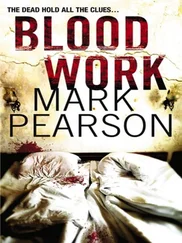'Have you any idea where she might be?'
'I haven't seen her since she burned Howard with the steam.'
'You haven't spoken to her on the telephone?'
'I don't use the telephone.'
'It's important if you know anything to tell us.'
Jake nodded, his worried eyes darting to left and right. 'I do know something.'
'What's that, Jake?' Delaney gave him a supportive smile.
'I know she's bad, I know she likes to hear people screaming. You've got to save Jenny.'
Delaney nodded. 'We're going to do the best we can.'
Jake grabbed his arm and Delaney was all too aware of the power in his grip. 'Don't let her hurt her.'
Delaney nodded again and Jake released his hold. Delaney gestured to Sally, and as they walked back towards the car, he had to make a conscious effort not to rub his arm.
'You think she's going to hurt the girl?' asked Sally as they moved out of earshot.
Delaney opened the car door without answering.
'What are we going to do, sir?'
Delaney could hear the frustration and concern in her voice, and understood it all too well. 'We're going to go to prison.'
'Sir?'
'Holloway. The university of hurting people. Find out why she got a distinction.'
Holloway prison lies north of King's Cross. If you were a hooker working the area round the station, you could probably walk there. If the crack cocaine hadn't rendered you unfit for the journey, of course. The only way a crack whore could make that journey, Delaney thought as he crunched through the gears, was in the back of a police wagon. Knickknack, paddy whack, give a dog a bone.
Sally was chatting away next to him but Delaney was only partly paying attention. He had made the mistake of asking her what she knew about Holloway, unaware that as part of her degree in criminology she had written a thesis on the role of the prison as a force for the social control of women, particularly as it had notably been used to house the suffragettes. Now she was practically repeating it verbatim.
Sally had got up to about 1903, talking about when the prison was solely designated for the housing of female offenders, when Delaney thankfully pulled up to the imposing-looking modern building and parked the car.
As they got out once more into the glaring heat of the sun, Delaney looked up at the blank-faced walls. It was a far cry from the gothic beauty of the original building. This could have been anywhere, Los Angeles, Sydney, Bradford. But behind the modern facade there still lingered a sense of its past. It wasn't hard to imagine ghosts walking at night, and the screams sounding in the darkness, he was sure, would be real enough.
Sally looked down at the plaque that had been laid in the original Holloway prison in 1852. It read: 'May God preserve the city of London and make this place a terror to evil doers.' Delaney followed her gaze. 'Sometimes the terror in here is better than what waits for them outside.'
The doors were opened and closed behind them. Nothing much had changed with that over the years. The doors might not be thick studded oak any more, and there might not have been electronic seals and cameras following their movements from every angle in years gone by, but the principle was the same. Once you were inside the prison you only got out when those inside said so. If it was an hour later, or sixteen years later, once the doors had closed behind you, you had no control over the matter.
Delaney and Sally waited at the reception area until a uniformed guard came to take them to the governor's office. He had kept them waiting for over fifteen minutes but Delaney didn't let it anger him. He knew the governor's job was all about keeping control. Exerting authority and keeping control. They may well have worked in associated jobs, but once that first gate had closed behind them they were in the governor's world now, and if he wanted to make a point then Delaney wasn't bothered. Besides, it was far, far, cooler inside the prison than in the blistering heat outside.
It was certainly cool in the governor's office. Air-conditioning saw to that, and it was as far removed from its Edwardian counterpart as a century of thinking allowed. The glass in the windows might have been toughened to withstand serious assault but the light they threw into the room was warm and pleasant. The whole room was pleasant, in fact: bright colours in prints and original paintings, a comfortable rug on the floor, modern books lining the shelves that made up one wall of the office.
Delaney swept his eyes around the furnishings as he sat in the comfortably cushioned chair that the governor had gestured him towards. Alan Bannister was a thin man of six foot four, with receding grey hair and rimless spectacles. Delaney put him in his mid-fifties and figured that he'd struggle to stay upright in a stiff breeze.
'Are you sure I can't order you some coffee? It really is no trouble.'
His voice was soft, educated. Delaney couldn't imagine him coping too well if an inmate got violent, but he guessed that was what his staff were for. And some of the lady officers he had seen on the way up here could have scared most of the inmates at Parkhurst.
'We don't want to take up too much of your time, Mr Bannister.'
'What can I do for you specifically, Inspector?'
'Anything you can tell us about Candy Morgan will be useful. What state of mind was she in?'
'State of mind?' He shrugged. 'She was glad to be leaving. That's for sure.'
'After eight years, I imagine she would be.'
'It's not always the case. A lot of our inmates don't want to be released, even if they won't admit as such to themselves.'
'Institutionalised?'
'Partly.'
Sally nodded. 'And partly the friendships, relationships they have built? It's like a family for some of them in here.'
Alan Bannister shrugged. 'Sometimes it's that. Or it's just because what waits for them outside is a lot worse than the life they have in here.'
'Sounds like you think it's a good thing for them to be incarcerated?'
Bannister shook his head, the passion ringing in his voice. 'I don't think that. The fact that they are here, however, is an indication that society has failed them, and by releasing them back to that society we are more often than not sending them into a vicious cycle of abuse and neglect.'
Delaney held up his hand dismissively. 'Yeah, all the women here are Girl Guides and society has let them down. Which brings us back to the biggest cookie-baker of them all. Candy Morgan.'
'So you said on the phone.'
'Was she one of those likely to reoffend? Insti-tutionalised? She was here a long time.'
'Like I said earlier, the women in here all have issues,' said the governor. 'But Candy Morgan was a particularly troubled soul.'
'I'd say that was an understatement.'
'But I had the sense she was hopeful about her future.'
'Hopeful?'
'Like she was looking forward to it. Not just because she would be getting out of prison, but because she had a sense of purpose. That's not often the case.'
'What kind of purpose?'
'Nothing specific. Nothing she spoke to me or my staff about anyway. But there was a new sense of excitement about what lay ahead for her in her closing days here. That much was clear. She wasn't looking backwards literally or figuratively when she walked out the door.'
'Did she ever mention her niece?'
'Not to me.'
Delaney was disappointed, but it was not entirely unexpected. 'I understand she had counselling?'
'It was part of her parole conditions. She served her full, original sentence, but she would have been here a lot longer had she refused it.'
'Because of the attack on the prison officer?'
'As you can well understand, we take that kind of thing very seriously.'
'What provoked the assault?'
Читать дальше












